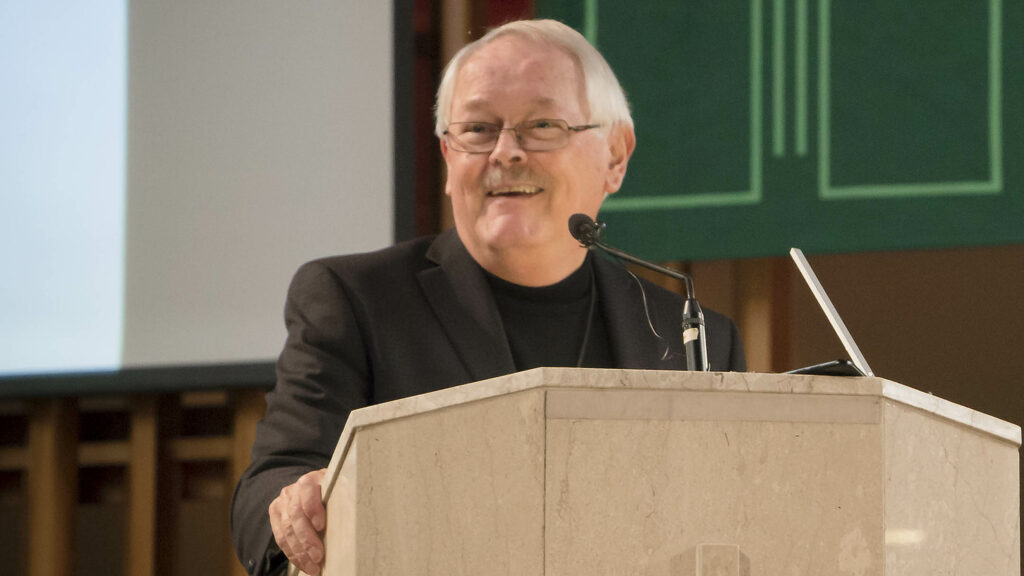When did we lose it? When did we lose that deeply-engrained, forever-sanctioned sense that however much we might disagree with each other or even dislike each other, we still need to accord each other basic courtesy, respect, and politeness?
We’ve lost that, at least for the most part. From the highest levels of government to the crassest platforms on social media, we are witnessing the death of respect, courtesy, and basic honesty. Nobody, it seems, is accountable any more for even the most basic manners or for honesty. Things we used to punish our kids for doing (name-calling, ethnic slurs, taunting, lying, and blatant disrespect of another) are now becoming acceptable in the mainstream. Even more worrisome is the fact that we feel justified morally in doing it. To be seen as courteous, respectful, and polite is no longer judged as a virtue but as a weakness. Civility has died.
What’s behind this? How did we move from Emily Post to what happens today on social media? Who gave us permission, societal and sacred, to do this?
Blaise Pascal once famously wrote that “men never do evil so completely and cheerfully as when they do it from a religious conviction.” Many people quoted that after the September terrorist attacks of 9/11, as they recognized this in radical Islamism where mass murder was justified and deemed as necessary in God’s name.
No doubt, it’s easier to see this in someone else because, as Jesus says, it’s easier to see the speck in your brother’s eye than the beam in your own. That same false belief that gave Islamic terrorists moral permission to bracket all the rules of decency is taking root everywhere today. Why? Religious passion for what one believes is right and the belief that one may get ugly in the cause of truth is prevalent everywhere today and is giving us moral permission to become disrespectful, dishonest, and discourteous in the name of truth, goodness, and God. This justifies itself as being prophetic, as armoring us as warriors for truth.
Nothing could be further from the truth. Hatred and disrespect are always the antithesis of prophecy. A prophet, says Daniel Berrigan, makes a vow of love, not of hatred. Like Jesus, a prophet weeps in love over any “Jerusalem” which meets his or her prophecy with hatred. A prophet never brackets the non-negotiable mandate always to be respectful and honest, no matter the cause. No cause, societal or sacred, grants one an exemption from the rules of elementary human courtesy.
Many people argue against this, pointing out that Jesus himself could be very harsh with those who opposed him. Harsh he was. Disrespectful and discourteous he was not. Moreover, underneath his challenge to those who opposed him, there was always the empathic yearning love of a parent for an alienated child, not the ugliness you see today in our government circles, in social media, and in the stare-you-down hatred we often see between various ideological factions today.
The truth can be harsh and confront us with a very strong challenge, but it can never be disrespectful. Disrespect is an infallible sign that one is not right, that one does not have the moral high ground, and that in this instance one is not speaking for God, truth, and goodness. To bracket the most elementary rules of love is to be a false prophet, caught up in self-interest and self-serving truth.
It is not easy to keep one’s balance in a bitter time. The temptation to slide down the ideological roof on one side or the other and please “one’s base” seems humanly irresistible. However, irrespective of which side we slide down, right or left, there always comes with this a prescribed rhetoric, a prescribed discourtesy, a prescribed disrespect, and not infrequently a prescribed dishonesty. Along with that slide also comes the self-same righteousness of those who opposed Jesus and believed that they were justified in being disrespectful and doing violence in God’s name.
Bitter times, a milieu of hatred and lies, and finding ourselves on opposing sides from each other, tempts us towards what comes naturally: name-calling, disrespect, lack of graciousness, and dishonesty whenever a truth or a lie serves us. Paradoxically, the challenge is in the opposite direction. Given the breakdown in civility today, the call from truth and from God is to be more careful, more scrupulous, and more uncompromising than ever in the respect, courtesy, and graciousness we accord to others.
We hope to be spending eternity with each other, dining at a single table. We do not prepare ourselves nor those we disagree with to take a place at that table by facing off with each other with hatred, dishonesty, disrespect, and coercion, as if that table could be taken by power and violence.
In the end, not everyone at that table will have liked each other this side of eternity, but everyone will be most gracious, respectful, and honest on the other side.

